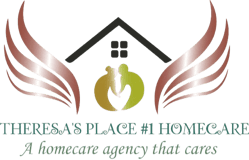When searching for quality in-home senior care in Essex County, NJ, start by understanding your loved one’s specific needs and preferences. Engage in conversations with potential caregivers, confirming they align with your expectations. Research local home care agencies, focusing on their licensing and reputation. Compare costs and explore insurance options to manage expenses. Conduct thorough interviews with caregivers to assess their qualifications. But how do you guarantee ongoing care quality?

Assessing Your Loved One’s Specific Care Needs
When evaluating your loved one’s specific care needs, start by observing their daily routine and identifying the areas where they require assistance. Pay attention to their personal care preferences, such as how they like their meals prepared or their favorite time for bathing. Understanding these nuances guarantees their comfort and dignity remain intact. Consider their daily activity requirements too. Do they need help with mobility, dressing, or managing medications? Note any challenges they face during routine activities. This detailed assessment will help you pinpoint the type and level of support needed. Don’t hesitate to engage in open conversations with them about their needs and preferences. Your thoroughness and empathy will guide you in finding the most suitable care solutions.
Researching Local Home Care Agencies
Having assessed your loved one’s specific care needs, it’s time to explore the options available in your area. Researching local home care agencies in Essex County, NJ, involves a detail-oriented approach to guarantee quality care. Start by focusing on the agency’s reputation, which is vital for peace of mind. Here’s how to begin:
Researching local home care agencies requires a focus on reputation for peace of mind and quality assurance.
- Online Reviews: Check websites like Google or Yelp for feedback on local agencies. Look for consistent positive comments about care quality and reliability.
- Word of Mouth: Talk to friends, neighbors, or medical professionals for their recommendations. Personal experiences can be invaluable.
- Accreditation Check: Verify if the agency is accredited by reputable organizations. This confirms they meet high standards of care.
Evaluating Caregiver Qualifications and Experience
Making certain that your loved one receives exceptional care starts with carefully evaluating caregiver qualifications and experience. Begin by researching caregiver training programs that emphasize both skill development and empathy. These programs often cover essential areas like patient safety, dementia care, and emergency response. You should ask potential caregivers about their training and certification to confirm they’re well-prepared for the task.
Background checks are another important step. They provide insight into a caregiver’s history, guaranteeing a safe environment for your loved one. Don’t hesitate to request detailed background information, including criminal history and any past employment issues.
Checking Agency Licensing and Accreditation
Before selecting an in-home senior care provider, it is vital to verify that the agency holds proper licensing and accreditation. Confirming the agency meets licensing requirements is critical for your loved one’s safety and well-being. A reputable agency maintains high standards and adheres to legal guidelines, which reflects positively on its reputation. Here’s how you can check:
- Verify Licensing: Contact state health departments or online databases to confirm the agency is licensed in New Jersey.
- Check Accreditation: Look for accreditation from recognized organizations like the Joint Commission or Community Health Accreditation Partner (CHAP).
- Assess Agency Reputation: Research any accolades or complaints against the agency to make sure they consistently deliver quality care.
Taking these steps helps provide peace of mind in your care decision.
Reading Client Reviews and Testimonials
When you’re exploring options for in-home senior care, reading client reviews and testimonials is essential in evaluating trustworthiness and credibility. Pay attention to patterns of consistent positive experiences, as they can reassure you about the quality of care provided. At the same time, be vigilant for any red flags, as recognizing them early can help you make informed and compassionate decisions for your loved one’s well-being.
Evaluating Trustworthiness and Credibility
How can you be sure the in-home senior care provider you’re considering is trustworthy and credible? Start by delving into their background checks and caregiver certifications. These elements are essential for ensuring the safety and quality of care your loved one will receive. Client reviews and testimonials can also provide invaluable insights into the provider’s reliability. Here’s how to evaluate them effectively:
- Look for patterns: Consistent themes in reviews can highlight strengths or recurring issues.
- Assess the details: Genuine testimonials often include specific instances of care and service.
- Check dates: Recent feedback can reflect the current quality and standards of the provider.
Being detail-oriented and compassionate in your search will help you make an informed decision.
Identifying Consistent Positive Experiences
Although reading client reviews and testimonials might seem straightforward, it’s crucial to approach them with a discerning eye to truly identify consistent positive experiences. Focus on feedback that highlights consistent care and positive interactions over time. Look for patterns of praise regarding the caregivers’ reliability, empathy, and communication skills. Reviews mentioning long-term satisfaction can indicate a trustworthy service that prioritizes your loved one’s well-being. Take note of positive interactions between the staff and clients, as these often reflect the agency’s overall culture. Pay attention to testimonials that detail specific instances of going above and beyond; they can reveal a level of dedication that sets a service apart. By carefully examining these details, you’ll find the right in-home care in Essex County.
Recognizing Red Flags Early
As you explore client reviews and testimonials, it is essential to recognize potential red flags that might indicate underlying issues with the in-home senior care service. Your loved one’s safety and wellbeing depend on identifying warning signs early. Pay close attention to:
- Negative patterns in caregiver behavior: Look for repeated complaints about caregivers being inattentive, unprofessional, or lacking empathy.
- Inconsistent care quality: Reviews that mention fluctuating care standards or frequent staff changes can signal instability within the service.
- Lack of responsiveness from management: If clients report difficulties in reaching or communicating with management, consider it a red flag for poor service.

Understanding Costs and Insurance Options
Understanding the financial aspects of in-home senior care is essential for making informed decisions. You’ll want to compare rates from different providers to find services that fit within your budget while meeting your loved one’s needs. Additionally, exploring various insurance coverage plans and affordable payment strategies can greatly ease the financial burden, ensuring you get the best care possible without unnecessary stress.
Comparing Care Provider Rates
Steering through the maze of care provider rates can feel overwhelming, but it’s vital when seeking quality in-home senior care. Understanding the costs is important to guarantee your loved one receives the best care options available. Here’s a concise approach to comparing rates:
- Research Locally: Compare rates of different providers in Essex County to identify standard pricing and available services.
- Evaluate Services: Determine what specific services each provider offers. Some may include additional support like meal preparation or transportation, which can influence costs.
- Seek Financial Assistance: Explore potential financial assistance programs that could help offset costs. This might include government aid, non-profit resources, or family contributions.
Exploring Coverage Plans
When maneuvering the complex world of in-home senior care, how do you confirm that you’re choosing a coverage plan that best suits your loved one’s needs and budget? Start by reviewing insurance coverage options and conducting a benefits comparison. Consider these key elements:
| Plan Type | Coverage Details | Monthly Premiums |
| Basic Plan | Limited services, essential care | $200–$300 |
| Standard Plan | Broad services, moderate care | $300–$500 |
| Premium Plan | Extensive, thorough care | $500+ |
Meticulously analyze each plan’s offerings. A detailed benefits comparison guarantees you’re not overlooking any vital aspects of coverage. Remember, the right plan balances benefits and costs, giving your loved one the quality care they deserve without unnecessary financial strain. Approach this task with care and precision for peace of mind.
Affordable Payment Strategies
- Prioritize Essential Services: Identify non-negotiable care elements and allocate funds accordingly.
- Evaluate Insurance Options: Review existing policies to maximize benefits and minimize out-of-pocket costs.
- Seek Professional Guidance: Financial advisors can offer customized advice to optimize your payment strategies.
Interviewing Potential Caregivers
Why is it essential to thoroughly interview potential caregivers for your loved one? It guarantees the caregiver’s communication skills align with your family’s needs. Prepare thoughtful interview questions to gauge their experience and empathy. Ask about their approach to daily tasks and how they handle emergencies. Discuss scenarios to understand their problem-solving skills and reliability.
Here’s a table to guide your interview process:
| Topic | Suggested Questions | Importance |
| Experience | What is your caregiving background? | Guarantees familiarity with senior care |
| Communication | How do you communicate with family members? | Assesses transparency and collaboration |
| Problem-solving | Describe a challenging situation you managed. | Evaluates critical thinking and patience |
| Compassion | Why did you choose caregiving? | Reveals motivation and empathy |
| Availability | What are your working hours? | Confirms scheduling and reliability |
Through detailed interviews, you’ll find the right caregiver.

Monitoring and Evaluating Ongoing Care Quality
Although selecting the right caregiver is essential, it’s equally important to continually monitor and evaluate the ongoing care quality to confirm your loved one’s needs are consistently met. Start by conducting regular check-ins to discuss any changes or concerns with the caregiver. It’s important to be proactive and detail-focused.
To effectively monitor care quality, consider the following steps:
- Ongoing Assessments: Schedule periodic evaluations to review the caregiver’s performance and confirm all care plans align with your loved one’s evolving needs.
- Feedback Loop: Encourage open communication between you, your loved one, and the caregiver. This creates a responsive environment that addresses issues promptly.
- Documentation: Keep detailed records of all observations, changes, and communications. Documentation helps track progress and identify patterns that need attention.
These steps help maintain a high standard of in-home care.
Frequently Asked Questions
What Activities Can Caregivers Provide for Seniors in Essex County, NJ?
You’ll guarantee seniors stay engaged by organizing social activities like book clubs or game nights. Incorporate therapeutic activities such as art therapy or gentle yoga, which promote emotional well-being and physical health, enhancing their quality of life.
Are There Bilingual Caregivers Available in Essex County?
In Essex County, you’ll find bilingual services offering skilled caregivers fluent in multiple languages. Prioritize caregiver qualifications, ensuring they meet your loved one’s needs with compassion and experience. Research agencies thoroughly to secure the best match.
How Do Cultural Preferences Affect In-Home Care Options in Essex County?
You’ll notice that cultural sensitivity shapes care options considerably. Caregivers must respect dietary preferences and traditions. By ensuring these needs are met, you provide compassionate, personalized care that honors seniors’ backgrounds, enhancing their comfort and well-being.
What Emergency Protocols Do Caregivers in Essex County Follow?
You’ll find that caregivers in Essex County are trained to follow strict emergency procedures. They’re equipped with CPR, first aid, and rapid response techniques to guarantee immediate and effective care during emergencies, prioritizing your loved one’s safety and well-being.
Can Caregivers Assist With Technology and Online Communication for Seniors?
Yes, caregivers can help seniors with technology training and communication support. You’ll find they patiently guide your loved one through using devices, setting up online communication tools, and ensuring they stay connected with family and friends.
Conclusion
Finding quality in-home senior care in Essex County, NJ, requires a thoughtful, detailed approach. Start by understanding your loved one’s unique needs and engaging openly with potential caregivers. Investigate local agencies, checking their licenses, accreditations, and client feedback. Compare costs and explore insurance or financial assistance. Interview caregivers thoroughly to assess their qualifications and communication skills. Finally, guarantee ongoing quality by regularly monitoring care and providing feedback. Trust your instincts and prioritize your loved one’s comfort and safety. Theresa’s Place #1 Homecare can help guide you through each step, offering compassionate, professional support tailored to your family’s needs.

